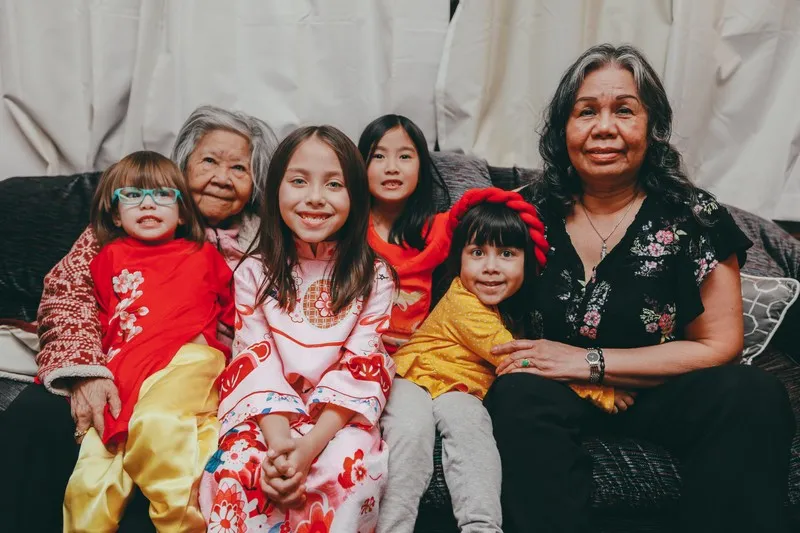Table of Contents
- The Historical Origins of Godparenthood
- Godparenthood Across Cultures
- The Role of Godparents in Contemporary Society
- Godparenthood, Kinship, and Family Dynamics
- Godparenthood and Social Capital
- The Future of Godparenthood
- Conclusion
Godparenthood is a social institution with deep roots in religious and cultural traditions. While often associated with Christian practices, the role of godparents has evolved across different societies and faiths, taking on diverse meanings and functions. In this article, we will explore the historical origins of godparenthood, the various roles godparents play in contemporary society, and the sociological significance of this institution. Understanding godparenthood involves examining its religious and secular contexts, its impact on family dynamics, and its role in shaping social networks and cultural values.
The Historical Origins of Godparenthood
The concept of godparenthood originated within early Christianity, particularly linked to the sacrament of baptism. In Christian theology, baptism is considered a significant ritual marking the initiation of an individual into the faith. From early times, godparents, or sponsors as they were initially called, were selected to guide the baptized person, often an infant, through their spiritual journey. This role was particularly crucial in the early Christian community when adult converts were predominant. Godparents acted as guarantors of the individual’s commitment to Christianity and were responsible for providing religious instruction and moral guidance.
During the Middle Ages, the role of godparents began to expand beyond the purely spiritual realm. It became customary for infants to be baptized soon after birth, and godparents started to be viewed as individuals who would support the child’s religious upbringing. Additionally, godparents were expected to care for the child in the event of the parents’ death, adding a practical, familial aspect to the role. By the Renaissance, the institution of godparenthood had solidified within European societies, with godparents assuming significant moral, spiritual, and even legal responsibilities for their godchildren.
Godparenthood Across Cultures
While godparenthood is most commonly associated with Christianity, other cultures and religions have similar practices that reflect parallel social functions. In many Latin American countries, for example, the compadrazgo system extends the notion of godparenthood beyond the religious domain, embedding it deeply into social and familial structures. Compadrazgo creates a formalized network of mutual aid and obligation between families, strengthening community ties. Godparents, or compadres, play a vital role not only in the child’s religious life but also in the broader social context, acting as secondary parents and contributing to the child’s education, moral development, and socialization.
Similarly, in many African cultures, the notion of godparenthood takes on various forms within extended kinship systems. Here, godparents may be selected to provide specific types of support, such as financial assistance or guidance in a particular aspect of life, such as marriage or career. The role of godparents is intertwined with the concept of communal child-rearing, where the responsibility of nurturing a child is not solely vested in the biological parents but shared among close family members and community leaders. This reflects a broader sociological understanding of child-rearing as a collective, rather than an individual, responsibility.
In these different contexts, godparenthood functions as a means of extending social networks, creating alliances, and reinforcing community cohesion. It provides a structured way of distributing care and responsibility for the upbringing of the next generation, contributing to the stability and continuity of social systems.
The Role of Godparents in Contemporary Society
In modern societies, the role of godparents has evolved significantly. While the religious aspects of godparenthood remain important for many, the function has also taken on more secular meanings. In many cases, godparents are chosen based on personal relationships rather than religious affiliation, and their role is primarily symbolic. For some families, godparents are selected as a gesture of honoring close friends or relatives, with little expectation of religious guidance or formal responsibilities.
Despite this shift, godparents still hold an important place in many families. They are often seen as individuals who provide additional support and mentorship to the child. In some cases, godparents are expected to play a significant role in the child’s life, offering guidance, emotional support, and practical assistance, especially in times of crisis. The selection of godparents can also reflect broader social patterns, such as the importance of friendship networks in contemporary society. In many instances, godparents are close friends of the parents, highlighting the way social bonds are formed and maintained outside traditional kinship structures.
This secularization of godparenthood reflects broader societal trends. As religious affiliation declines in many parts of the world, especially in Western societies, godparenthood increasingly becomes a means of expressing social ties and mutual support. The role of godparents may be less about religious instruction and more about reinforcing social connections and providing additional layers of emotional and practical support for children and their families.
Godparenthood, Kinship, and Family Dynamics
Get the full article AD FREE. Join now for full access to all premium articles.
View Plans & Subscribe Already a member? Log in.





